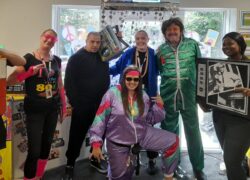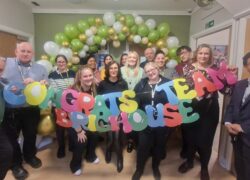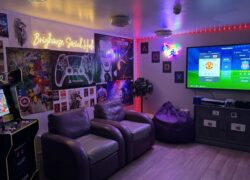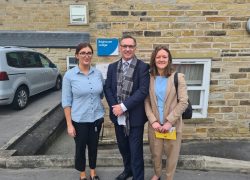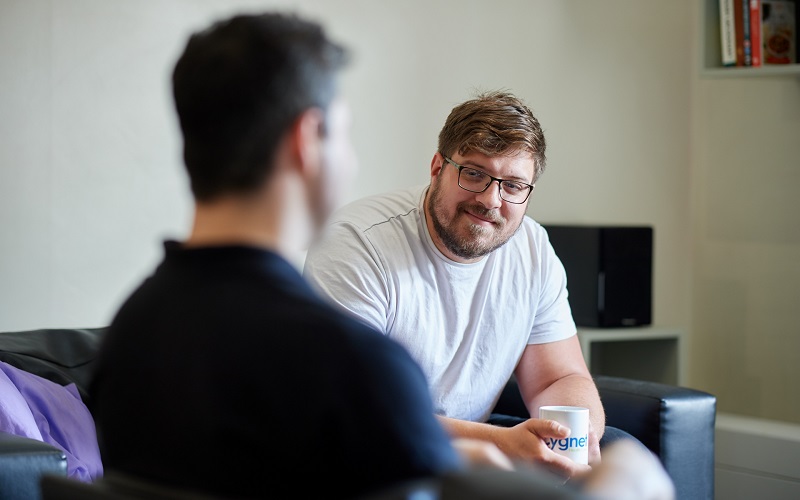
Cygnet Lodge Brighouse is keen to ensure all service users are offered over 25 hours of therapy or meaningful activities per week. We provide bespoke packages of care to individual service users ensuring they have regular meaningful activities on a weekly basis.
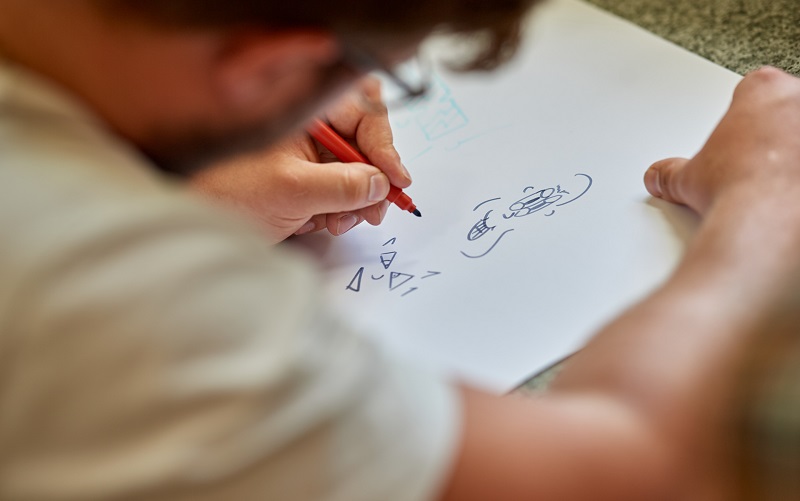
Service users are given an individualised activity planner and are monitored with the amount of activities they attend. Each service user at Cygnet Lodge Brighouse is offered on average 45.5 hours of meaningful activities and therapies per week. This can include the following:
- Dog walking and pet therapy
- Community meetings and morning planning meetings
- Daily cooking sessions in the ADL kitchen
- Snooker club
- Close links with local college
- Voluntary work in local charity shops, on conservation projects, in cafes and tea rooms
- Gardening and allotment groups
- End of day reflection meetings
- Service User Involvement Group
- Service user planned activities such as theatre trips
- Badminton Group
- Jogging Group
- ‘Walk on the Wild Side’ activities
- Beauty Group
Occupational Therapy
The OT service at Cygnet Lodge Brighouse believes that each service user is unique. Because of this fundamental belief, we are able to offer a holistic rehabilitation approach, which is dedicated to promoting independence, autonomy and empowerment. We work alongside service users to help them develop community skills, work skills and social skills. Independence is also promoted through skills development, such as cookery, budgeting and home skills.
Psychological Therapy
Our clinical and forensic psychologists work collaboratively with service users to reduce psychological distress and to enhance and promote psychological health and well-being. This is achieved through a variety of related functions.
Using an array of standardised assessment tools, the psychologists collaboratively investigate the issues and difficulties the service users’ present with. This could include assessments of cognitive functioning, risk of future violence, personality features and trauma history amongst others. The results of these assessments are shared with the service user and their care team to inform treatment and management.
Following the assessment, therapy goals are formulated in collaboration with the service user and form the basis of therapeutic interventions. These interventions typically employ a Cognitive Behavioural approach and can include anger management, trauma focused therapy, emotion regulation therapy, dealing with symptoms of psychosis, and offending behaviour work. These interventions can be delivered individually or facilitated in groups. All work is regularly reviewed with service users to ensure best practice standards and to enhance the journey to recovery.
Art Therapy
The overall aim of art therapy is to enable a service user to effect change and growth on a personal level through the use of art materials in a safe and facilitating environment. The therapist offers both group and individual sessions.
Substance Misuse Worker
A comprehensive assessment of substance use is completed with each service user that is identified as having dual diagnosis to ensure we fully understand their individual needs. From this a treatment pathway is initiated, which includes individual and group sessions.
Individual Work
The nursing and medical team work with and alongside the individual to promote recovery, independence and wellbeing. Each service user is allocated a named nurse and team, who provide individual sessions and support with daily care needs. My Shared Pathway is used and enables a seamless transition from previous services.
The team has a wealth of knowledge in areas such as CBT, PSI, DBT and Family Therapy. Medical cover is provided by a highly experienced and specialised rehabilitation medical team, consisting of an associate specialist and consultant psychiatrist. They support patients with illness awareness work, medication management and self-administration of medication.
Groups
We offer the following intensive educational groups:
- Psycho-educational Group: This is a group which is delivered by a nursing team looking at a variety of issues including mental health awareness and psycho social interventions to help ensure service users stay well when in the community.
- Relaxation Group: A group designed to encourage use of alternative means to relax. Service users are invited to attend in the aim of acquiring ways in which to relax through the skills practiced as carried out by the therapy team. Service users engage with guided imagery or deep muscle relaxation to music designed to aid relaxation.
- Community Living Group: This group is designed to open up discussion regarding living in a ‘community’. Initially focused on consulting living within the community at Cygnet Lodge, the topics discussed are applied to further afield communities such as future accommodation and situations that the service users may encounter.
- Recovery Model Group: Delivered by a team of nurses aiming to promote and improve well being helping service users develop on their journey, encompassing the Recovery Star.
- Substance Misuse Course: This is a rolling 16 week programme to bring abstinence to service users substance misuse problems. Using Motivational Interviewing techniques the nursing team provide education and motivation to change.
- Projects Group: Working with the maintenance team and staff around the unit service users are offered the chance to work on various ‘projects’ that can help improve Cygnet Lodge or offer service users something more hands on to get involved with. Projects have included; staff car wash, Lodge improvement (for example, fence painting), gardening and growing of fruits and vegetables.
- Personal Development Group: A group designed for the service users to improve their skills in various areas that can assist them in acquiring future opportunities or just allow skills development of the service user. The group offers various skills to work on and is flexible to accommodate service user’s request. Such skills can include; computer skills, letter writing or building a record of achievement.
- ‘The Workshop’: Delivered by the Occupational Therapy team and Social Work department this group provides service users with the skills and opportunities to return to gainful employment. The group looks at basic skills of ‘how to apply for jobs’, writing CV’s and interview techniques. The group then collaborates with local organisations to find suitable voluntary work with the aim to move to paid employment.
- Debate Group: Tackling a new topic every week, the therapy team challenges service users to engage in a, sometimes heated, debate of current issues around the world. Covering a wide range of issues the debate group challenges currently held views with alternative opinions and also encourages understanding of differing points of view. A brief sheet is provided expressing various ‘for’ and ‘against’ statements to express key points in the area of discussion.
- Art Therapy Group: An open group which encourages service users to express themselves using a variety of skills and materials.

